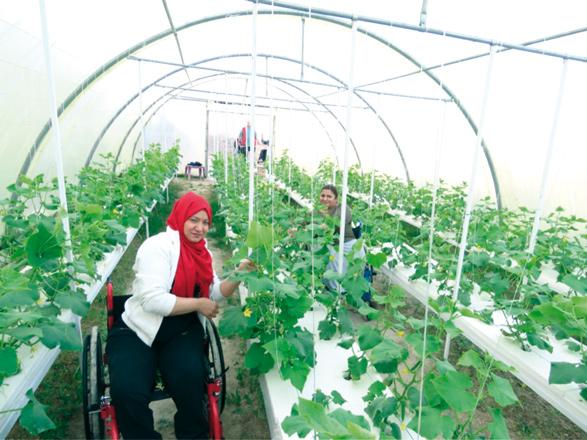You are here
FAO conducts workshop on water efficiency, sustainability
By JT - Oct 10,2022 - Last updated at Oct 10,2022

Participants at the FAO’s ‘Implementing the 2030 Agenda for Water Efficiency/Productivity and Water Sustainability in NENA countries’ final workshop pose for a photo on Monday (Photo courtesy of FAO)
AMMAN — The Food and Agriculture Organisation of the United Nations (FAO), on Monday launched the first day of the final workshop of the project “Implementing the 2030 Agenda for Water Efficiency/Productivity and Water Sustainability in NENA countries” to discuss with national key stakeholders the main findings of the implemented activities under different components in the country.
The project is funded by the Swedish International Development Cooperation Agency (SIDA), according to a FAO statement.
The workshop was under the patronage of Mohammad Najjar, Minister of Water and Irrigation, with the participation of the national stakeholders involved in the project implementation from the Ministry of Water and Irrigation (MWI), Ministry of Agriculture (MoA), National Agricultural Research Centre (NARC).
The Jordan Valley Authority (JVA), Water Authority of Jordan (WAJ), Ministry of Energy and Mineral Resources (MEMR), Ministry of Environment (MoE), Jordanian Department of Statistics (DoS), the University of Jordan, NGO (WADI) were also among the participating entities, in addition to the local community based associations and international partners.
The objectives of this final workshop is to present a summary of findings of the project’s on-ground and capacity-building activities carried out since 2017, and agree on the action plan for the institutionalisation of different project approaches and the adoption of the various national concerned institutions.
The objectives also include sharing experiences and lessons learnt through the presentation of case studies and projects and developing an exit strategy and formulate a sustainability plan to be adopted after the handover of the project.
The workshop paves the way to more regional and global cooperation towards the establishment of a regional dialogue and stimulate discussions among participants leading to the creation of a working groups in areas of common interest between different national institutions, read the statement.
On behalf of Minister of Water and Irrigation, Secretary General Jehad Almahameed stressed on the importance and the benefits of such projects in identifying all available water resources and quantities, and monitoring and water losses for more efficient use of water and for sustainable water management.
FAO Representative in Jordan Nabil Assaf said: “The countries of the region including Jordan need to strategically plan their water resources management and allocation, review their water, food security and energy policies, formulate effective investment plans, modernise governance and institutions and account for transboundary surface and groundwater.
“Jordan and the countries in the region need to adopt good practices to ensure alignment with the imperatives of setting the sustainable limits of water consumption and making the best use of each single drop of water, including the use of non-conventional water sources. Therefore, the adoption of an analytical framework on the water-food-energy-climate-ecosystem nexus will be instrumental to such strategic planning through the coordination between sectors and countries,” he added.
Assistant Secretary-General for Agricultural Extension at the MoA, Baker Balawneh appreciated FAO’s continuous support and highlighted the importance of Farmers Field Schools in contributing to farmers’ knowledge and education.
“Implementing the 2030 Agenda for Water Efficiency/Productivity and Water Sustainability in NENA countries” is a regional project implemented by FAO under the Water Scarcity Initiative. The project promotes the 2030 Agenda for Water Efficiency/Productivity by supporting eight countries (including Algeria, Egypt, Iran, Jordan, Lebanon, Morocco, Palestine and Tunisia) to strategically manage and allocate water resources by integrating water, food security and energy policies, read the statement.
Related Articles
AMMAN — The National Agriculture Research Centre (NARC) held a workshop at Ramtha Research Station for reused treated water in agriculture.T
AMMAN — The Food and Agriculture Organisation (FAO) of the United Nations in Jordan has convened a two-day workshop titled “Second Nexus Dia
AMMAN — The Food and Agriculture Organisation of the United Nations (FAO) and the Ministry of Agriculture (MoA) on Monday launched a pioneer
















